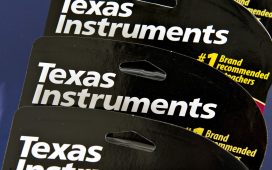Need a stronger password?
Experts say to use emojis.
On a computer, it turns out that emoticons are considered a symbol, which can beef up your passwords and make them more secure in combination with letters and numbers.
“When intruders try to brute-force a password containing letters, numbers and punctuation marks, there are fewer than a hundred variations for each symbol they need to pick,” Stan Kaminsky, with the cybersecurity giant Kaspersky, told The Sun.
“But there are more than 3,600 standardized emojis in Unicode, so adding one to your password forces hackers to go through around 3,700 variants per symbol.”
In theory, a password with five emojis, he said, is actually the same as a traditional passkey with only nine characters. Seven emojis, he added, is equivalent to 13 “regular characters.”

Even better, emojis might be easier to remember than a “jumble” of letters, numbers and punctuation, and they often aren’t used in a “brute-force” attack, which is when hackers attempt to log in to an account using a long list of potential passwords.
However, Kaminsky warned that not every site will allow emojis in passwords, and including many emojis in a passkey could slow down the login process.
He recommended not using emojis that could “give you away” — such as frequently used emoticons — and encouraged adding one or two emojis to a traditional alphanumeric password.
“Of course, using emojis is no substitute for traditional security tips: using long passwords, a password manager and two-factor authentication (2FA),” he added.

Psychologists have encouraged people to use affirmations as login passwords to bring positivity into their lives — at least for a brief moment during sign-in.
“The key is to choose a new password that reflects the state of mind you wish to establish,” Dr. Mariah G. Schug, a Psychology Today contributor, previously suggested.










